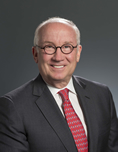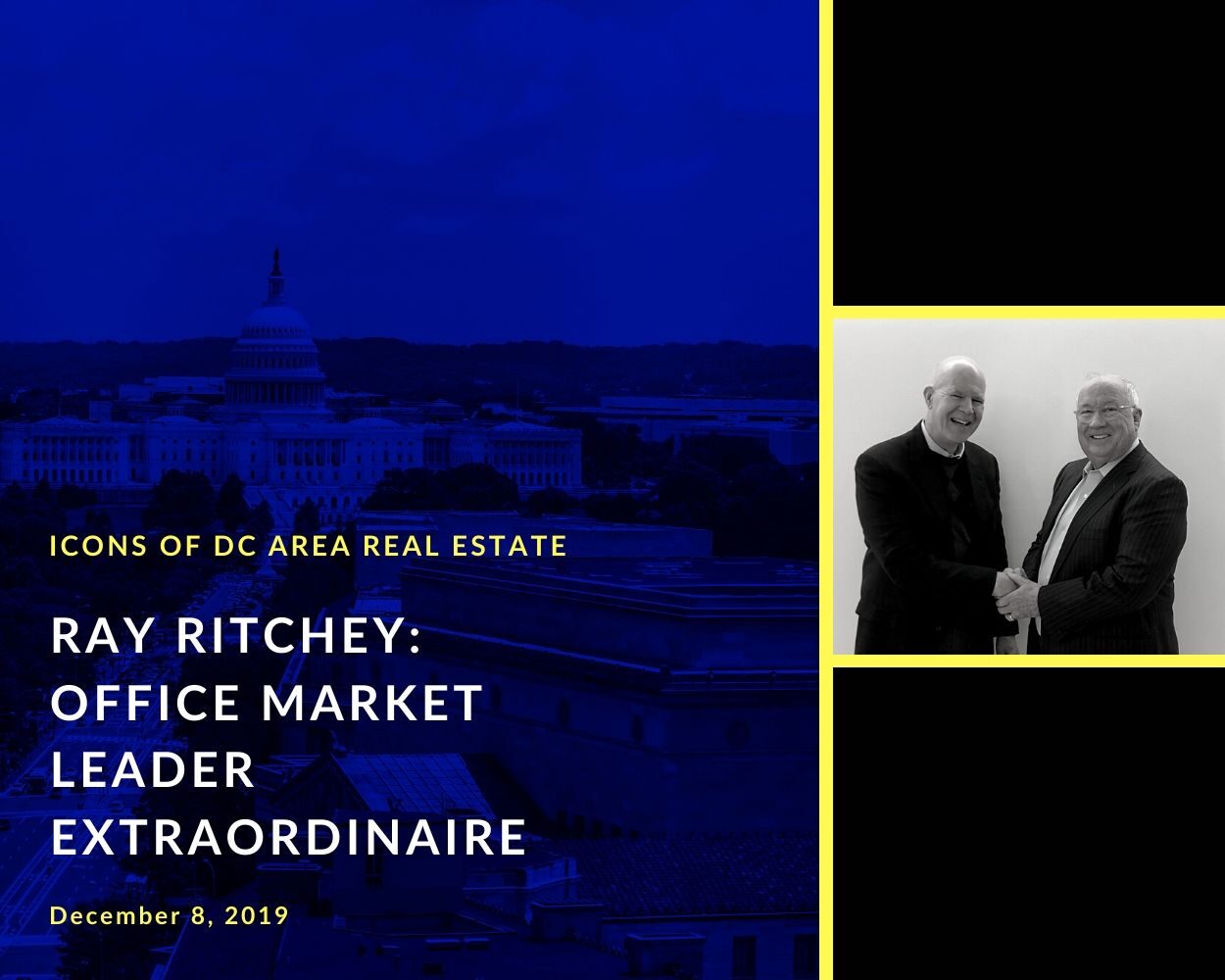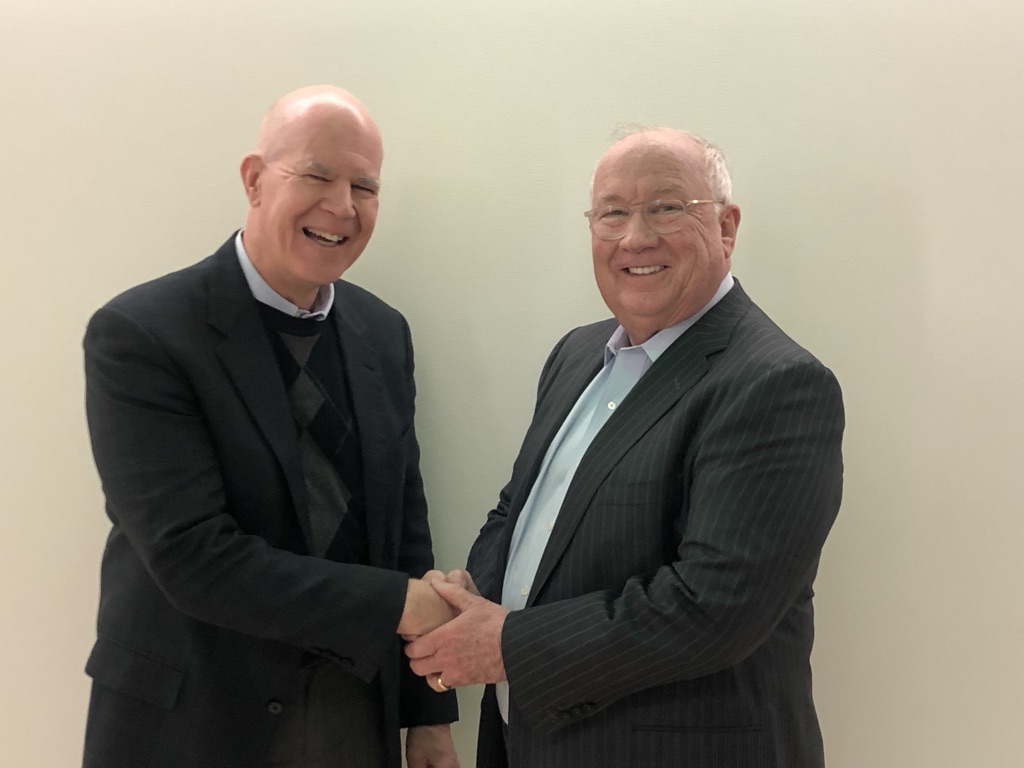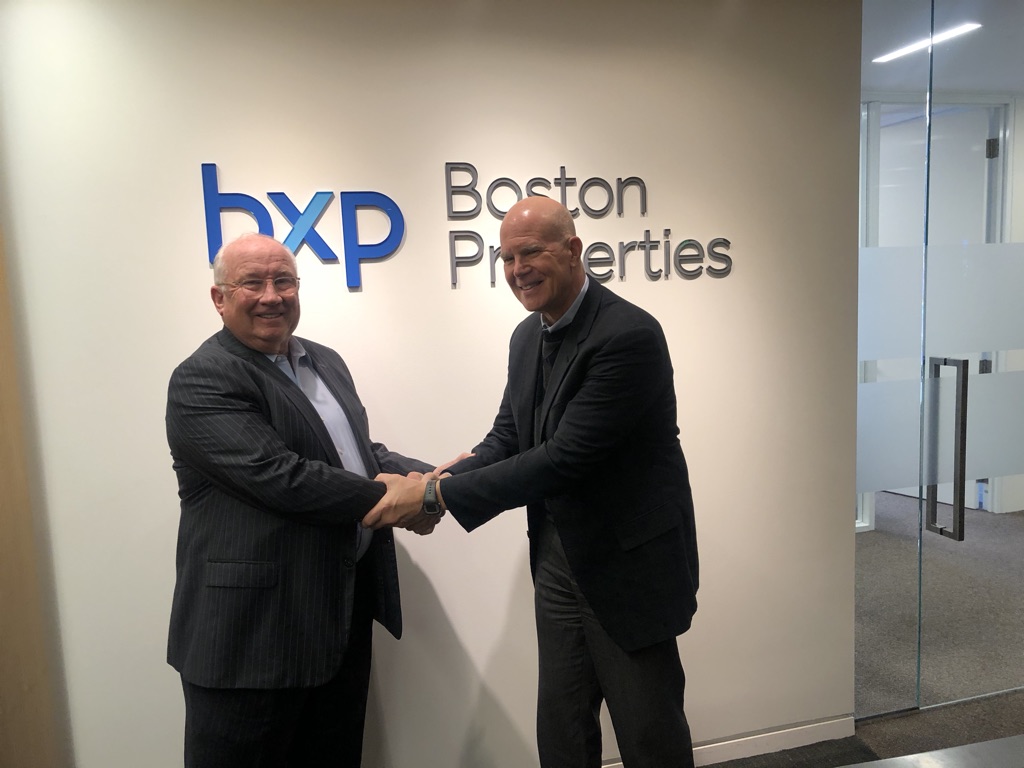

Bio
Raymond (“Ray”) A. Ritchey serves as Senior Executive Vice President at Boston Properties (BXP). Prior to his appointment to this position in January 2016, Mr. Ritchey served as Executive Vice President, Head of the Washington, DC Office and National Director of Acquisitions and Development since April 1998 and Senior Vice President and Co-Manager of the Washington, DC office. Mr. Ritchey is responsible for all business development, leasing and marketing, as well as new opportunity origination in the Washington, DC area. He also directly oversees similar activities on a national basis. Mr. Ritchey joined BXP in 1980, leading its expansion to become one of the dominant real estate firms in the Washington, DC metropolitan area. For four years prior to joining us, Mr. Ritchey was one of the leading commercial real estate brokers in the Washington, DC area with Coldwell Banker. Mr. Ritchey is the President of the Board of Spanish Education Development (SED) Center; a member of the Federal City Council; a member of The Economic Club of Washington; Founding member of the National Association of Industrial and Office Properties (NAIOP), Northern Virginia; Chair of the JDRF Real Estate Games; and an active volunteer with numerous civic, charitable, and real estate industry organizations. A sampling of Mr. Ritchey’s professional honors include: ULI Lifetime Achievement Award; Man of the Year, CREW; Brendan McCarthy Award, GWCAR; Good Scout of the Year, Boy Scouts; Trendsetter of the Year, Transwestern; Developer of the Year (numerous organizations); and Junior Achievement Man of the Year. He is a graduate of the U.S. Naval Academy and a graduate of the U.S. Naval Post Graduate School in Monterey, California.
Shownotes
For Episode #6 my guest is the inimitable Ray Ritchey, arguably one of the most well liked and respected real estate executives in the Washington region. As you will hear, Ray comes from a rather humble background with a father who was a traveling salesman and growing up in suburban St. Louis, MO. He attended the Naval Academy during the Vietnam War and served in the Navy without even a cruise and gets a great education in leadership, hard work and people skills. Recruited by Coldwell Banker in 1977 as one of the first brokers in the DC commercial real estate office, he excelled as a tenant rep agent. He brought several tenants to a new building being built on Capital Hill in 1979 and was recruited by the landlord, Boston Properties, to lead the Washington office the next year. Here are a few highlights from our discussion:
- “Leave our communities better than what they were before” (3:56)
- Traveling around as a youth as the son of a traveling salesman who was a “character” and a mother who never said anything negative that he ever heard. He was “blessed” to have them. (6:15)
- Family experiences helped him to learn discipline (7:00)
- Met wife in HS and kept relationship going through his entire tenure at the Naval Academy. “First and most successful cold call.” (8:00)
- As an Academy cadet in uniform coming into Georgetown in 1968 and was “disrespected” due to the antiwar environment at the time. (9:10)
- Inspired by Roger Staubach to attend the Naval Academy and told him later when he met him doing a transaction and told him that he had inspired him to go to Navy. (10:35)
- Military discipline- “5 minutes early is on time” (11:57)
- “I am not a technical person, yet I had to take technical course work” (12:40)
- “Better to do things that you don’t like” (13:00)
- Pizza broker- Bought pizzas and resold them by the slice to make money to help him bring his girlfriend to visit from St. Louis. (13:45)
- Learned he would be “seasick” so realized he could not “sail” and went on to graduate school in Monterey, CA and subsequently served in Guam (14:30)
- 5 yrs active duty without being on a ship (15:30)
- Moved back to DC and worked in Crystal City at the end of his military career. (16:40)
- “Great to be lucky, but you can make yourself lucky” . Story about leaving his resume at the Naval Academy and Jim O’Brien of CB offering him a job as a broker at $900/mo. draw (17:18)
- “Why the hell not” go for a job (18:30)
- Compatriots at CB office were like fraternity brothers. Some of them included John Kyle, George Voris, Bruce Baschuk, Bill Janes, Steve Spencer, Cab Grayson, Hal Boles, and Vernon Knarr (19:15)
- No one had heard of “tenant rep” before- Used WP want ads to prospect and cold called “Help Wanted” ads to see if they needed space (20:00)
- Within 2-3 yrs. was making good money and brought three tenants to Boston Properties and dealt directly with Mort Zuckerman as listing broker was fired (21:40)
- The building (Capital Gallery) where he did his first leases BP still owns (23:12)
- 1980s activities- West End buildings- 24th St. & N St. (US News and World Report) (24:30)
- Mort Zuckerman bought US News and World Report (25:00)
- Learned from Mort to be patient and think moves ahead (25:27)
- Mort and Ed Linde were great mentors to him at BP (25:50)
- “Low salary but got a small piece of project- Lesson- get payment of ownership” (26:50)
- “Live to the capacity of your worst year, not your best” (27:35)
- “Loved seeing how buildings had impact on the community”– examples of West End in the 1980s and 2200 Penn about 10 yrs. ago (29:00)
- Has a strong feeling about people respecting buildings that BXP has built (29:53)
- Comments about the legal community and then construction community (30:20)
- He is dedicated to the “Hispanic Community” which contributes almost 90% of the construction workers on commercial projects through the SED Center, a non profit dedicated to child care for community (31:15)
- Tribute to Jim Clark of Clark Construction (Ray is visibly moved by his efforts) (32:35)
- Three generations of developers (Older pioneers including the Benders, Carrs, Antonelli, Smith and Gould and then the real estate professionals (including BXP) completed then by the REITs (35:00)
- Loved the team he created at BXP here locally and their retention staying at the company (36:50)
- “Washington DC is unique in that my friends are some of my biggest competitors”– Other markets are intensely competitive. (37:15)
- Office building trends- Growth of East End in the 1980s and now NOMA, the Ballpark, Navy Yard, and The Wharf in DC (38:36)
- Construction trends- Inside out look by tenants now important- glass line, environmental (40:00)
- Technology- fax machine, voicemail, mobile phone experience (40:35)
- Database Management- Manual process (41:55)
- About the last 5-10 yrs. people who have made the biggest impact is the “disrupters” in the market- Costar, Bisnow, new technology (42:50)
- Advice to young people- “Find a ‘disruption’ role instead of traditional roles- broker or developer” (43:40)
- Story about WeWork at Metropolitan Square that has 200,000 s.f. and are the “filter” for small companies that can’t commit to longer commitment (44:40)
- Clearly a place for shared office facilities- only 10% of market, however absorption is almost 50% (46:22)
- Ray is “old school” and likes to come into an office and share ideas (49:44)
- BXP has an unique perspective on job growth- DC is now seeing contraction in core demand drivers (government) yet seeing other markets (SF, NY, Boston, LA) growing due to tech tenants (51:00)
- Believes that tech will grow considerably in the DC market with an investment in technical education (52:45)
- Book recommendation: “New Geography of Jobs“- Tech demand lifts the quality of work and pay (55:00)
- BXP wants to drive tech demand (56:00)
- Issues with Tysons and comparison with Reston and how it was planned with a street grid in Reston Town Center making it “walkable.” Retail is better because of office and vice versa. (57:00)
- Evolution of Rosslyn-Ballston Corridor to Rosslyn-Tysons Corridor and soon to be Rosslyn- Loudoun transit corridor (59:12)
- Life sciences demand less space than “death sciences”- biological labs do not transfer to space use and people as much as “security” research and deployment (1:01:00)
- Experience in Montgomery County and Reston comparison is dramatically different both in capacity and rents (1:03:00)
- Another RTC site will be hard to find and build due to cost and will not be replicated (1:04:40)
- Opinion of National Landing- Amazon and JBG team (1:06:35)
- 5 Build To Suit projects currently with almost 7 million s.f. capacity in Reston (1:08:00)
- Bernsteins brought BXP to Marriott HQ development- Explains why they were asked to co-develop the project (1:08:50)
- 5 different general contractors on 5 projects (1:09:40)
- Pick best architect for the assignment in hand (1:10:30)
- Bring business to BXP (1:10:50)
- NPR case study and story how BXP engineered the development of the new property and redevelopment of the existing building into a new class A building on a build to suit basis for Arnold & Porter (1:12:00)
- “Always building your brand” . BXP closed on the evening of the “crash” in 2008 (1:14:10)
- Biggest pet peeve- “Developers sometimes don’t build the best building they could build” (1:15:40)
- Comparison of BXP with private developers- doesn’t have to find capital other than a phone call to corporate (1:18:00)
- Interviewing- Have they done their homework? Bring the pad of paper and take notes. Respect the interviewer. (1:20:00)
- “Tell you what you need to hear.” Be focused (1:22:10)
- “Never worked a day in my life!” (1:23:55)
- Believe that BXP project that employs thousands of people that “gives back” -3.1MM s.f. of space (1:24:40)
- Important to leave a better impression in the market (1:28:00)
- Success- Creating BXP brand in the market (1:26:30)
- Failures- No regrets…deals they did not win sometimes were best not to have won (1:27:20)
- You are always building your brand. Be friends with coworkers and competitors (1:27:50)
- Three letters after a loss of a deal- to tenant, broker and competitive developer who won deal from them (1:28:00)
- Compares when he came into the industry to now (1:29:00)
- Billboard answer (1:29:50)



